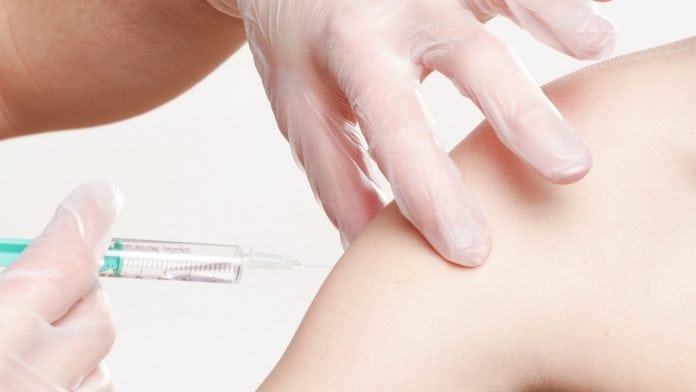
The HPV vaccination has resulted in substantial reductions in the number of young women in England who have the infections which can cause cervical cancer.
Human papillomavirus (HPV) 16 and 18 infections, which are the major causes of cervical cancer cases, have decreased by 86% in women aged 16-21 who were eligible for the HPV vaccination as adolescents between 2010 and 2016.
Published in the Journal of Infectious Diseases, the data shows that declines were seen across five high-risk HPV types, which combined cause almost 90% of cervical cancer cases, as well as low-risk HPV types.
HPV vaccination making a better future
These results suggest that the HPV vaccination programme will bring large future reductions in the number of cases of cervical cancer, the most common form of cancer in women under 35, killing 850.
Also, the programme has led to a marked decline in genital wart diagnoses, with the number of diagnoses in sexual health clinics falling in girls aged 15-17 by 89%, and in boys of the same age by 70%, between 2009 and 2017 as a result of herd immunity.
Genital warts are caused by some low-risk strains of HPV, which the current vaccine also protects against.
Reducing the spread of infection
Mary Ramsay, head of immunisations, Public Health England (PHE), said: “These results are very promising and mean that in years to come we can expect to see significant decreases in cervical cancer.”.
She continued: “This study also reminds us how important it is to keep vaccination rates high to reduce the spread of this preventable infection. I encourage all parents of girls aged 12-13 to make sure they take up the offer for this potentially life-saving vaccine.”
The study also found clear declines in the prevalence of HPV31, HPV33 and HPV45, which are not included in the current vaccine.
Making cervical cancer a disease of the past
Robert Music, chief executive, Jo’s Cervical Cancer Trust, added: “It is extremely positive to see the impact that the vaccination has had on prevalence of cervical cancer-causing HPV infection among vaccinated women.
“One day we hope to see cervical cancer become a disease of the past and it is only through high vaccination rates that we will get there. For women who have had the vaccine, it is important to remember it does not offer full protection against cervical cancer, so attending cervical screening when invited is still important.”
About the HPV vaccination programme
The HPV vaccination programme was first introduced in 2008. Over 80% of people aged 15-24 have now been vaccinated in the UK and 80 million have received the vaccine worldwide.
All girls can get the HPV vaccine free from the NHS from the age of 12 up to their 18th birthday. The vaccination programme is delivered through schools, but if girls miss out they can request it from their GP surgery.
Earlier this year on Health Europa, Rebecca Shoosmith from Jo’s Cervical Cancer Trust outlined the long-term consequences of cervical cancer and its treatment.






















